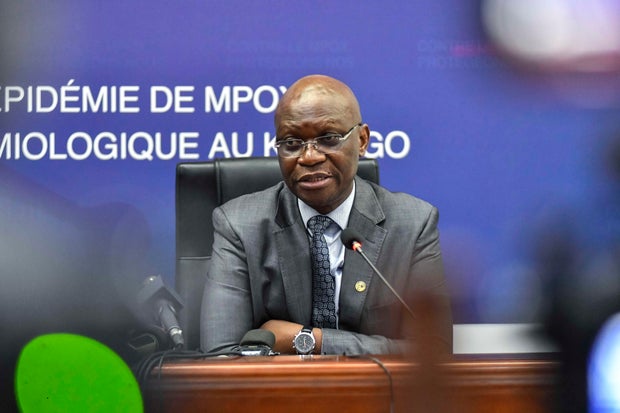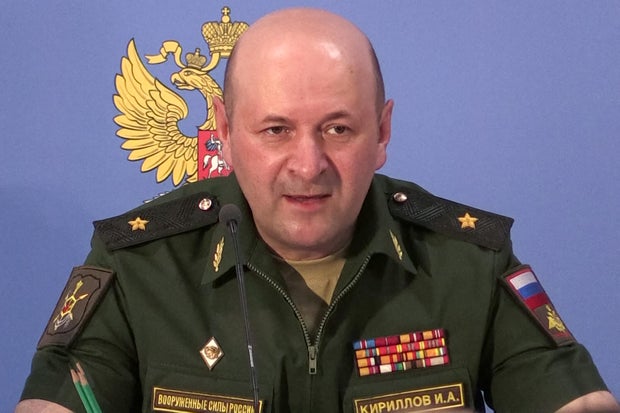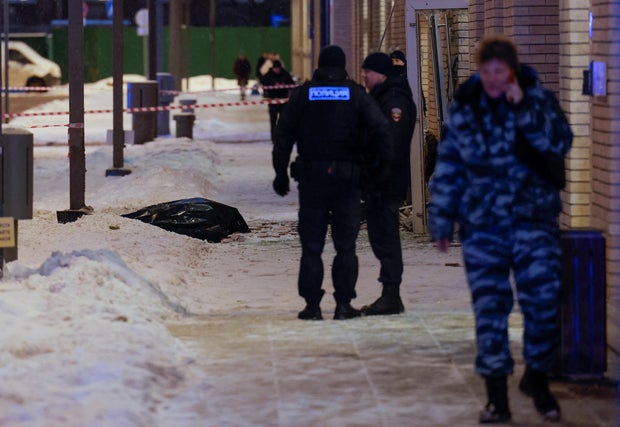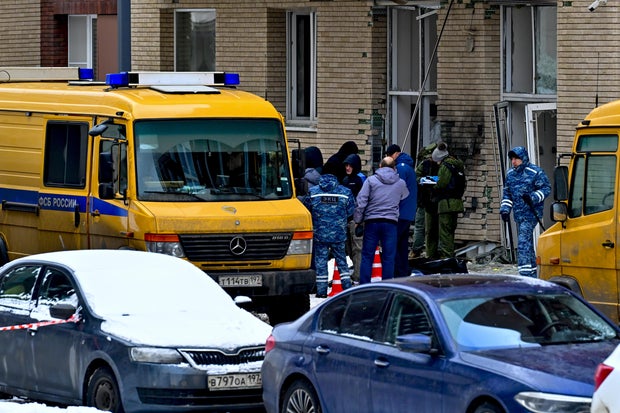CBS News
Victor Manuel Rocha, ex-U.S. ambassador, admits to spying for Cuba for decades
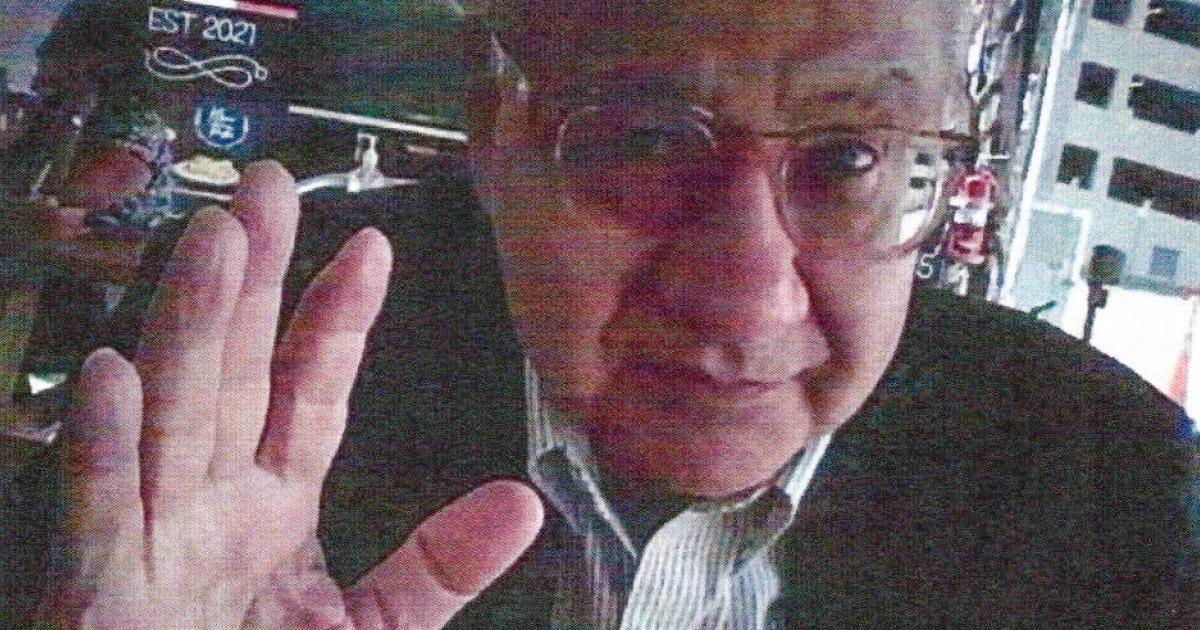
Washington — A former U.S. diplomat admitted to spying for Cuba for decades, telling a judge on Thursday that he intends to plead guilty to federal charges stemming from his espionage on behalf of the communist regime.
Victor Manuel Rocha, the former U.S. ambassador to Bolivia, was indicted in December on charges that he allegedly spied for Cuba’s intelligence agency for four decades.
During a hearing in federal court in Miami on Thursday, Rocha said he had agreed to plead guilty to two charges of conspiring to act as an agent of a foreign government, according to The Associated Press. Prosecutors agreed to dismiss more than a dozen other charges in exchange for his guilty plea, the AP said.
The two counts carry a maximum sentence of between five and 10 years behind bars. The AP reported that Rocha replied “I am in agreement” when the judge asked him if he wanted to change his plea. His intention to change his plea was reflected on the case’s docket after the hearing. Rocha is due back in court on April 12.
Investigators alleged Rocha was recruited by Cuba’s spy agency, the Directorate of Intelligence, in Chile in 1973. The intelligence service instructed him to create a cover story to conceal his double life, according to prosecutors.
After Rocha’s arrest, Attorney General Merrick Garland described the case as “one of the highest-reaching and longest-lasting infiltrations of the U.S. government by a foreign agent.” He said Rocha pursued U.S. government jobs that “would provide him with access to non-public information and the ability to affect U.S. foreign policy.”
Department of Justice / AP
The government has not publicly said what information Rocha might have divulged to Cuba or how he could have influenced U.S. policy. Rocha held high-level security clearances, giving him access to top secret information, according to the indictment.
Rocha had at least three meetings with an undercover FBI agent, whom the retired diplomat believed to be a representative of Cuba’s spy agency. He referred to the U.S. as “the enemy” and said “what we have done” was “enormous” and “more than a grand slam,” according to the criminal complaint.
“My number one concern; my number one priority was … any action on the part of Washington that would endanger the life of the leadership, or the revolution itself,” Rocha allegedly told the undercover agent.
Rocha was born in Colombia and became a naturalized U.S. citizen in 1978. For more than two decades beginning in 1981, he worked for the State Department in various positions in Latin America, including as ambassador to Bolivia from 2000 to 2002. Cuba fell under his purview when he served as director for inter-American affairs at the National Security Council and as a deputy principal officer at the U.S. diplomatic mission in Havana. After leaving the State Department, he was an adviser to the commander of the U.S. Southern Command, whose area of responsibility includes Cuba.
Rocha’s employment with the U.S. government overlapped with that of Ana Montes, a former Defense Intelligence Agency analyst who spent 20 years in prison for spying for Cuba before being released in 2023. She was recruited by Cuban intelligence in 1984 before she was hired by the Defense Intelligence Agency.
In one of his meetings with the undercover FBI agent, prosecutors said Rocha praised a U.S. government employee who had spied for Cuba, saying she “was betrayed.”
“Sadly she would have done much more had she not been betrayed,” he said, later identifying her as “Ana,” according to the indictment.
CBS News
Congo says mystery disease behind dozens of deaths of women and children finally identified as severe malaria

Johannesburg — For weeks it was dubbed simply “Disease X.” But the mysterious flu-like disease that has killed more than 143 people — mainly women and young children — in the Democratic Republic of Congo has finally been identified.
“The mystery has finally been solved,” Congo’s health ministry declared in a statement on Tuesday. “It’s a case of severe malaria in the form of a respiratory illness.”
The health agency said malnutrition in the hardest-hit region had weakened the local population’s immunity, leaving them more vulnerable to the disease. People who contracted the malaria infection have exhibited symptoms including headache, fever, cough and body ache.
The Congo’s health minister had told journalists the country was on “maximum alert” over the spread of the previously unidentified disease, and health officials told CBS News in early December that the remoteness of the epicenter of the outbreak and lack of a diagnosis made it difficult to launch a concerted response.
Samy Ntumba Shambuyi/AP
At least 592 cases were reported after the alert was first raised by Congo’s health ministry on Oct. 29. The ministry said the disease had a fatality rate of 6.25%. More than half of the deaths recorded were children younger than five who were severely malnourished when they contracted the disease, according to the World Health Organization.
At a press briefing on Dec. 10, WHO Director-General Tedros Adhanom Ghebreyesus said 10 out of 12 samples from patients suffering from the mysterious disease had tested positive for malaria, but he said they were still testing at the time for other diseases.
The Congolese government had sent a rapid intervention team to the Kwango province, 435 miles southeast of capital city Kinshasa, consisting of epidemiologists and other medical experts. Their objective was to identify the disease and mount a suitable response. Government officials had earlier warned locals to avoid touching people infected with the illness or the bodies of those who had died.
Congo has suffered from many disease outbreaks in recent years, including typhoid, malaria and anemia. The country has also grappled with an mpox outbreak, with more than 47,000 suspected cases and over 1,000 suspected deaths from the disease, according to the WHO.
Anti-malaria medicine provided by the WHO was being distributed at local health centers in Congo, and WHO officials said more medical supplies were due to arrive in the country Wednesday.
It’s the rainy season in Congo, which often sees a rise in malaria cases, and will certainly complicate treating those most at risk.
CBS News
Russia says suspect detained in killing of Gen. Igor Kirillov, head of Russian chemical weapons unit

Moscow — Russia’s security service said Wednesday that it had detained a suspect in the killing of a senior general in a Moscow bomb blast. The suspect was described as an Uzbek citizen whom the agency said had been recruited by Ukrainian intelligence services.
Ukrainian security sources told CBS News on Monday that the Security Service of Ukraine (SBU) was behind the explosion that killed Lt. General Igor Kirillov. The claim couldn’t be independently verified, but Russian officials quickly vowed to take revenge against Ukraine’s leaders.
Russia’s Federal Security Service didn’t name the suspect, but it said he was born in 1995. According to an FSB statement, the suspect said he was recruited by Ukrainian special services.
AFPTV / AFP via Getty Images
“Kirillov was a war criminal and an absolutely legitimate target, since he gave orders to use prohibited chemical weapons against the Ukrainian military,” an informed source in the SBU asserted to CBS News. “Such an inglorious end awaits everyone who kills Ukrainians. Retribution for war crimes is inevitable.”
Kirillov was killed by a bomb hidden in an electric scooter outside his apartment building in Moscow, a day after Ukraine’s security service leveled criminal charges against him. His assistant also died in the attack.
The FSB said the suspect had been promised a reward of $100,000 and permission to move to a European Union country in exchange for killing Kirillov. It said that, acting on instructions from Ukraine, the suspect traveled to Moscow, where he picked up a homemade explosive device. He then placed the device on an electric scooter and parked it at the entrance of the residential building where Kirillov lived.
The suspect then rented a car to monitor the location and set up a camera that livestreamed video from the scene to his handlers in the central Ukrainian city of Dnipro. When Kirillov was seen leaving the building, the suspect detonated the bomb.
According to the FSB’s statement, the suspect faces “a sentence of up to life imprisonment.”
Kirillov, 54, was the chief of the Russian military’s radiological, biological and chemical protection forces. Either Kirillov himself or his military unit were sanctioned by several countries, including the U.S., Britain and Canada, for the alleged use of chemical weapons on the battlefield in Ukraine. On Monday, Ukraine’s SBU had opened a criminal investigation against him, accusing him of directing the use of banned chemical weapons.
Maxim Shemetov/REUTERS
Ukraine’s SBU has said it recorded more than 4,800 occasions when Russia used chemical weapons on the battlefield since President Vladimir Putin launched his full-scale invasion in February 2022. In May, the U.S. State Department announced sanctions against Kirillov’s unit, saying the U.S. had recorded the use of chloropicrin, a poison gas first deployed in World War I, against Ukrainian troops.
Russia has denied using any chemical weapons in Ukraine and, in turn, has accused Kyiv of using toxic agents in combat, and Kirillov was allegedly behind the spread of that propaganda.
Kirillov, who had been in his post since April 2017, was accused by the U.S. government of helping to spread disinformation about biological weapons and research.
In March 2023, about a year into Russia’s full-scale invasion, the U.S. State Department said Kirillov had “significantly increased his media engagement” to issue repeated, baseless claims that the U.S. government had been involved in creating both the mpox virus and COVID-19, and that the U.S. “is developing biological weapons able to selectively target ethnic groups.”
“The U.S. Government is concerned that this false narrative may be a prelude for a false-flag operation, where Russia itself uses biological, chemical, or nuclear weapons in Ukraine, and then attempts to blame it on Ukraine and/or the United States,” the State Department said at the time.
Sefa Karacan / Anadolu via Getty Images
The bomb used in Tuesday’s attack was triggered remotely, according to Russian news reports. Images from the scene showed shattered windows and scorched brickwork.
Russia’s top state investigative agency said it’s looking into Kirillov’s death as a case of terrorism, and officials in Moscow vowed to punish Ukraine.
CBS News
Suspect detained in killing of Gen. Igor Kirillov, head of Russia’s biological, chemical forces in Moscow blast

Moscow — Russia’s security service said Wednesday that it has detained a suspect in the killing of a senior general in Moscow.
The suspect was described as an Uzbek citizen recruited by Ukrainian intelligence services.
Russia’s Federal Security Service, or FSB, didn’t name the suspect, but said he was born in 1995. According to an FSB statement, the suspect said he was recruited by Ukrainian special services.
Ukrainian security sources had told CBS News Monday that the Security Service of Ukraine (SBU) killed Kirillov in a special operation. The claim couldn’t be independently verified, but Russian officials quickly vowed to take revenge against Ukraine’s leaders.
AFPTV / AFP via Getty Images
Lt. Gen. Igor Kirillov was killed Tuesday by a bomb hidden in a scooter outside his apartment building in Moscow, a day after Ukraine’s security service leveled criminal charges against him. His assistant also died in the attack. A Ukrainian official said the service carried out the attack.
The FSB said the suspect had been promised a reward of $100,000 and permission to move to a European Union country in exchange for killing Kirillov.
The agency stated that, acting on instructions from Ukraine, the suspect traveled to Moscow, where he picked up a homemade explosive device. He then placed the device on an electric scooter and parked it at the entrance to the residential building where Kirillov lived.
The suspect then rented a car to monitor the location and set up a camera that livestreamed footage from the scene to his handlers in the central Ukrainian city of Dnipro. Once Kirillov was seen leaving the building, the suspect detonated the bomb.
According to the FSB’s statement, the suspect faces “a sentence of up to life imprisonment.”
Kirillov, 54, was the chief of the military’s nuclear, biological and chemical protection forces and was under sanctions from several countries, including the U.K. and Canada, for his actions in Moscow’s military operation in Ukraine. On Monday, Ukraine’s Security Service, or SBU, opened a criminal investigation against him, accusing him of directing the use of banned chemical weapons.
Russia has denied using any chemical weapons in Ukraine and, in turn, has accused Kyiv of using toxic agents in combat.
Kirillov, who took his current job in 2017, was one of the most high-profile figures to level those accusations. He held numerous briefings to accuse the Ukrainian military of using toxic agents and planning to launch attacks with radioactive substances – claims that Ukraine and its Western allies rejected as propaganda.
The bomb used in Tuesday’s attack was triggered remotely, according to Russian news reports. Images from the scene showed shattered windows and scorched brickwork.
Sefa Karacan / Anadolu via Getty Images
Russia’s top state investigative agency said it’s looking into Kirillov’s death as a case of terrorism, and officials in Moscow vowed to punish Ukraine.



